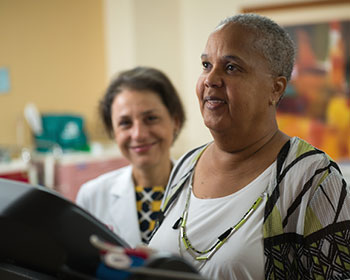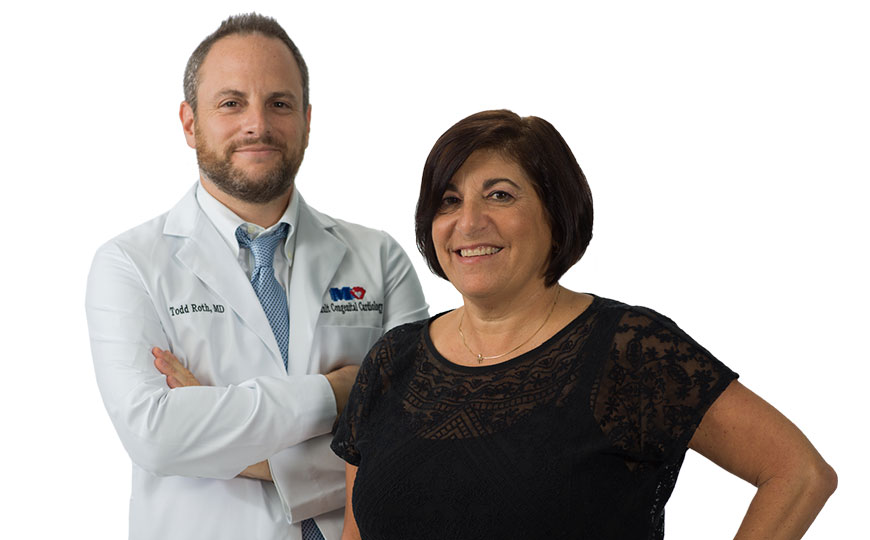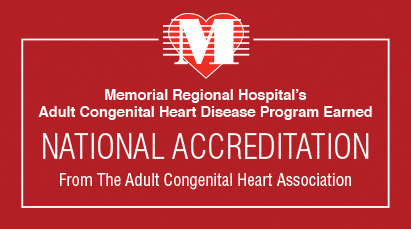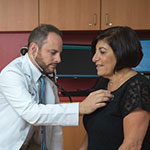

and Percutaneous Coronary
Interventions (PCIs)
Ablations
Valve Replacements
(TAVRs)
Including Transplants
Management Devices
TAVR: An Alternative to Traditional, Invasive Heart Valve Surgery
TAVR is a minimally invasive procedure that treats heart valve disease without performing traditional open-heart surgery. It uses a transcatheter approach to replace a failing aortic valve, and results in less bleeding and a faster recovery time.
Memorial Cardiac and Vascular Institute has been performing TAVR since it was first approved by the FDA. The TAVR program offers valve-in-valve procedures, a collaborative team approach and three-star recognition from the Society of Thoracic Surgeons for aortic valve replacement surgery.

70% of all cardiac catheterizations at Memorial Cardiac and Vascular Institute are performed using the radial (wrist), not the groin, approach

The national average of radial access is 30%
The radial approach reduces bleeding and discomfort, and afterward, patients can be mobile faster

The Florida Hospital Association honored Memorial Cardiac and Vascular Institute with its Innovation of the Year in Patient Care award – recognizing a multidisciplinary collaboration between the institute and Joe DiMaggio Children’s Hospital
The medical teams performed a successful ventricular tachycardia ablation via a trans-apical approach on a 14-month-old girl
3rd time the procedure had been done – anywhere – and the 1st time ever on a child

Advanced Heart Failure Program Grows
Thanks to advances over the last 50 years – including heart transplantation and the development of mechanical assist devices – heart failure has become a defined subspecialty in cardiology. Memorial Cardiac and Vascular Institute’s Advanced Heart Failure Program is a leader in the field, offering:
- Complex medical management
- Access to advance heart failure clinical trials
- Ventricular assist devices and
- Heart transplant (the first in Broward County)
This year saw important growth in the program, with the addition of advanced heart failure specialists Priyanka Gosain, MD, and Maria Avila Robles, MD. Upcoming projects include: Expanding the program’s outpatient services – including the debut of a cardiomyopathy clinic that will provide comprehensive evaluation, genetic consultation and counseling.
ECMO Saves Lives
Extracorporeal membrane oxygenation (ECMO) is an advanced form of mechanical circulatory support that is similar to cardiopulmonary bypass, in which a pumping machine temporarily takes over the work of the heart and the lungs. “Extracorporeal” means that the machine is doing its circulation work outside the body. “Membrane oxygenation” means that the machine performs the function of the lungs – putting oxygen into the blood while removing carbon dioxide.
ECMO technology can make a lifesaving difference for patients suffering cardiac arrest, heart failure, a traumatic road accident, or even a very bad attack of the flu. By circulating blood and oxygen throughout the body, ECMO gives surgical and critical care teams the time and space they need to treat a patient’s underlying condition.
Memorial Cardiac and Vascular Institute is the only provider in South Florida offering mobile ECMO services, which provide safe hospital-to-hospital transfers under the care and supervision of a specially trained ECMO transport team.
Coming Soon: New 19-Bed CVICU
Memorial Cardiac and Vascular Institute is building a new, cutting-edge cardiovascular intensive care unit at Memorial Regional Hospital, which will be completed by October 2018.
In the CVICU, Memorial Cardiac and Vascular Institute team members provide 24/7 monitoring to patients who have had heart surgery, heart transplants and other cardiac conditions requiring acute support. The new CVICU will be a vital component in continuing to deliver outstanding cardiac and vascular care. This patient- and family-centered intensive care unit is staffed around the clock by board-certified cardiac intensivists, cardiac nurses and respiratory therapists with access to the entire multidisciplinary team.

Memorial Cardiac and Vascular Institute Repairs Elinor’s Congenital Heart Defect
Elinor was born with a congenital heart defect and underwent a surgery at age 7 to correct it.
But decades later, she was tiring easily, and was experiencing shortness of breath and an irregular heartbeat. Upon seeking care at Memorial, it was determined that her previously corrected heart valve was leaking. She was in heart failure.
Fortunately, the multidisciplinary Adult Congenital Heart Disease team at Memorial Cardiac and Vascular Institute had several advanced options to consider with Elinor.
The cardiac team got together with Elinor to develop her treatment plan. During interventional surgery, the team repaired her heart valve and also reorganized Elinor’s electrical pacing system. “There was no reason to travel far away when I had the phenomenal option of Memorial, with their team right here in South Florida,” Elinor said.
Now, with proper circulation restored, Elinor looks forward to living a full life and participating in the activities she loves.
"It worked, and I feel great,” she said. “I’m back to exercising and doing everything I wanted to do.”
“Patients with congenital abnormalities of the heart should be able to expect to lead full and active lives. To do that, they need access to the continuity of care that Memorial’s Adult Congenital Heart Disease program provides.”Larry Latson, MD
Co-Director, Adult Congenital Heart Disease Program









